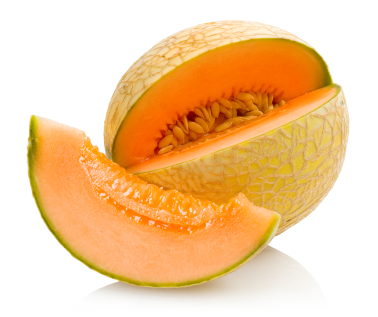Cantaloupe Recall- Kidney Patients Considered High Risk
 Once again a message was sent out to alert consumers about contaminated food—this time cantaloupe.
Once again a message was sent out to alert consumers about contaminated food—this time cantaloupe.
According to the Centers for Disease Control and Prevention (CDC) and the Food and Drug Administration (FDA), 72 people are ill and 13 people have died from eating listeria contaminated cantaloupe.
Listeria is an illness-causing bacteria similar to salmonella and E. coli, but more deadly. Most of the past listeria outbreaks are related to soft cheese and deli meats, but in the past 2 years there have been several produce-related outbreaks. Symptoms of listeria include fever, muscle aches, diarrhea, nausea and vomiting. In some cases victims are unable to speak.
The elderly, pregnant women and people with compromised immune systems are at greatest risk of becoming ill. People with kidney disease are likely to have compromised immune systems and are considered at greater risk for illness if they have consumed contaminated cantaloupe. The symptoms of listeria don’t always show up right away. It can take four weeks or more for a person to become ill after eating food contaminated with listeria.
The FDA has published these guidelines for consumers who suspect they may have purchased contaminated cantaloupes:
Consumer Safety Information
Listeria can grow at refrigerator temperatures, about 40◦Fahrenheit (4◦Celsius). The longer ready-to-eat refrigerated foods are stored in the refrigerator, the more opportunity Listeria has to grow.
It is very important that consumers clean their refrigerators and other food preparation surfaces. Consumers should follow these simple steps:
- Wash hands with warm water and soap for at least 20 seconds before and after handling food.
- Wash the inside walls and shelves of the refrigerator, cutting boards and counter tops; then sanitize them with a solution of one tablespoon of chlorine bleach to one gallon of hot water; dry with a clean cloth or paper towel that has not been previously used.
- Wipe up spills in the refrigerator immediately and clean the refrigerator regularly.
- Always wash hands with warm water and soap following the cleaning and sanitization process.
Cantaloupe is usually restricted on a low potassium diet followed by kidney patients on hemodialysis because it is high in potassium. A one cup serving of cantaloupe contains 494 mg potassium. Patients on peritoneal dialysis or those who have low potassium may be instructed to eat high potassium foods. Play it safe and avoid cantaloupe unless you know it is from a safe source.
The recalled cantaloupes were shipped from Jensen Farms in Holly Colorado, from July 29 through September 10, 2011 to the following states: Arizona, Arkansas, California, Colorado, Idaho, Illinois, Kansas, Minnesota, Missouri, Montana, Nebraska, New Jersey, New Mexico, New York, North Carolina, North Dakota, Ohio, Oklahoma, Pennsylvania, South Dakota, Tennessee, Texas, Utah, Virginia, and Wyoming. There is no indication of foreign distribution at this time.The FDA said state health officials had found listeria in cantaloupes taken from grocery stores in the state and from a victim’s home that were grown at Jensen Farms. Matching strains of the disease were found on equipment and cantaloupe samples at Jensen Farms’ packing facility in Granada, Colorado.
For more information about listeria, go to http://www.cdc.gov/listeria/index.html.
Kidney diet resources from DaVita.com
- Review and rate recipes
- Discussion Forums
- Monthly Recipe Alerts
- DaVita Diet Helper
- Phosphorus ChallengeTM
- Food Analyzer
- DaVita Cookbooks

Recent Comments